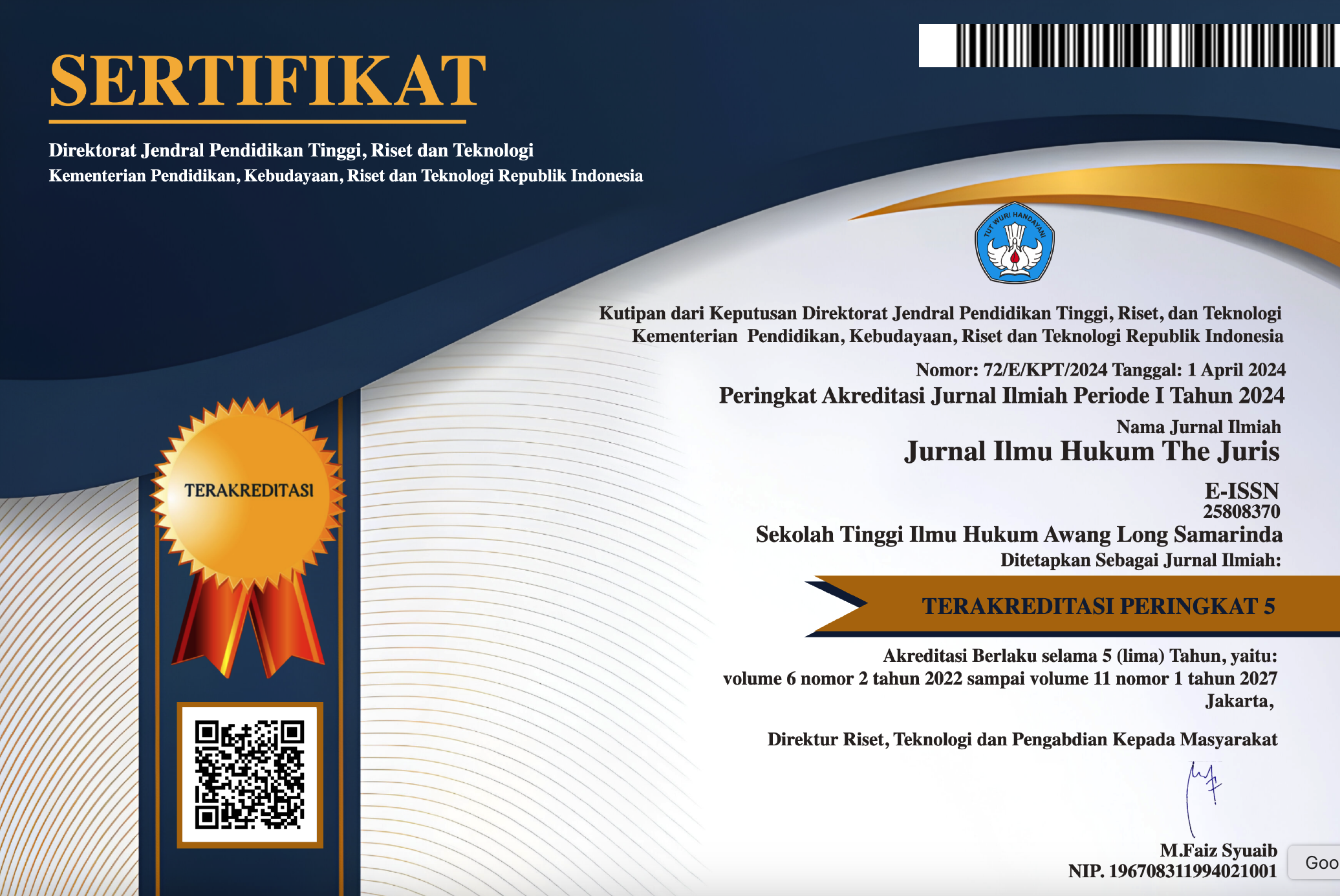KEPASTIAN HUKUM PENYELESAIAN SENGKETA MEDIS YANG BERKEADILAN
Abstract
Article 14 of Law Number 29 of 2004 concerning Medical Practice states that the Indonesian Medical Discipline Honorary Council (MKDKI) is the body authorized to determine whether doctors and dentists have made mistakes in the application of medical and dental disciplines and to impose sanctions. This provision indicates that any medical dispute appears to be resolved through the Indonesian Medical Discipline Honorary Committee. However, the current medical dispute settlement through MKDKI is not in accordance with the principle of impartiality, as seen from the process of resolving medical disputes which takes a long time and may not necessarily be executed, including whether the applicant/patient won the case in the Indonesian Medical Discipline Honorary Council (MKDKI) session. What is the legal certainty of equitable medical dispute resolution? And how to realize a just MKDKI decision? The research method is carried out in a normative juridical manner. The results of the study show that justice can be obtained through civil lawsuits, either unlawful acts or defaults on the implementation of therapeutic agreements between patients and doctors in district courts. Legal certainty will be realized if medical dispute resolution arrangements are formed. Meanwhile, the applicant/patient in resolving medical disputes using the MKDKI mechanism, in this case between the patient and the doctor, has not received justice because the MKDKI decision does not contain an unlawful act clause, but rather the application of medical science to patients.
Downloads
Copyright (c) 2022 I Putu Harry Suandana Putra, Ni Putu Yuliana Kemalasari

This work is licensed under a Creative Commons Attribution-ShareAlike 4.0 International License.







